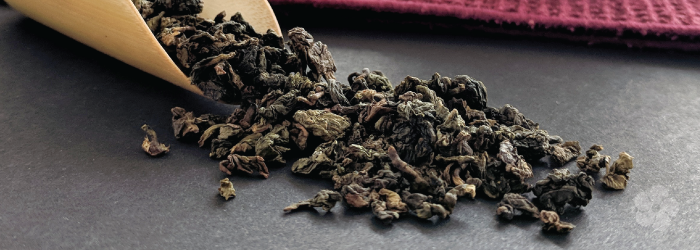My curiosity got the better of me having seen on the menu of speciality teas in a Hull Eatery the availability of "Monkey Picked Oolong".
This immediately summoned up in my mind a rather magical image although somewhat tempered by the pooh-flinging activities of those naughty chipmanzees in the animated Madagascar.
I found this very informative blog from 2018 on the internet pages of The Red Blossom Tea Company who are based in San Francisco, USA. I apologise for reproducing it almost word for word but who better to explain the legend being the beverage than the actual Experts. Here goes;
For drinkers of Chinese tea, the label “Monkey Picked” is a familiar one, typically applied to oolong teas made from the Tieguanyin variety in Anxi County, Fujian in the south East Mainland of China.. Today, with the moniker applied to a vast range of teas within this style, it seems fairly obvious that it has taken on a poetic meaning, meant to imply information about the style and quality of the tea rather than offer factual information about the harvesting process. Certainly, tea farms in Anxi County don’t really depend on teams of monkeys to pluck their valuable leaves...do they?
As the legend goes, monkeys were first employed to pluck leaves from the rocky mountains and steep cliffs of Fujian Province, where wild, ancient tea trees produced valuable leaves that were out of reach for humans. Various versions of this story attribute the first monkey picked teas to ambitious local tea farmers, a wandering monk with a pet monkey, or cagey merchants who made the whole thing up to protect the secrets of Chinese tea production.
No matter the origin of the story, the conclusion is the same: monkey picked teas are unique and rare, coming from high elevations with terrain so remote and inaccessible that it has never been touched by human hands. Such tea is of the highest quality, and must command the highest prices. Those monkeys work hard, you know.
But the ubiquity of the name in today’s speciality tea markets reveals that the ‘Monkey Picked’ name has been diluted, just like most other poetic denominations of tea quality. Just as most tea labelled Da Hong Pao is not from the handful of government-protected mother plants, most monkey picked tea is not of the rare and venerated quality the name once implied.
Many tea merchants will implore that while ‘Monkey Picked’ is now applied to lower grades, their own tea bearing that name is, in fact, authentically picked by monkeys. Even among aficionados, many self-proclaimed experts will insist that while most “Monkey Picked” teas are simply cashing in on the marketing opportunity, there is one “true” monkey picked tea, where innovative local farmers have indeed successfully trained monkeys to help them harvest tea plants that are difficult to access. Ironically, the lack of photo proof or common knowledge of these practices only heightens the sense of obscurity and value for these “authentic” claims. It could just be monkey business.
Part of the reason for this story’s persistence is its closeness to truth. Indeed, monkeys are trained to harvest other crops like coconuts, and have certainly proven they have the intelligence and dexterity for these kinds of tasks. For those of us who don’t have extensive experience with training monkeys or picking tea, this seems like a fairly believable solution to an established problem.
But unlike coconuts, which can be handled roughly and dropped from great heights without damage, tea leaves are delicate and fragile before they are wilted for processing. Tea leaves must be carefully handled to avoid bruising or breaking before they arrive at the processing centre, and all tea harvesters must be able to differentiate and carefully select the proper leaves for the specific tea’s plucking standard, which often varies with the season.
These stringent standards, enforced most strictly in the making of the highest grades, require the awareness and skill of humans with years of experience, and are unlikely to be met by monkeys who are simultaneously scaling steep and dangerous cliffs. Similarly, it is unlikely that lower grades would be picked by monkeys, since the same function can be filled by more efficient machines with fewer maintenance costs.
At any rate, in all our years travelling to tea farms in China, we’ve only caught sight of the slackers - we’ve never seen a single monkey picking tea leaves.



No comments:
Post a Comment